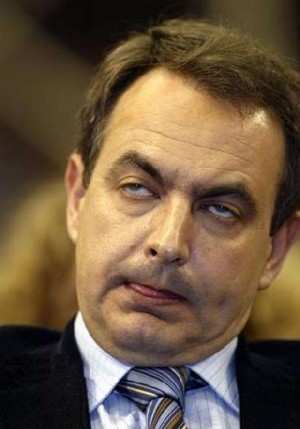Spain’s economy pursued a “slow recovery” in early 2011, the Bank of Spain said Friday, after joining crisis-torn Greece and Ireland as the only eurozone economies to shrink in 2010.
Spain is fending off fears in international financial markets that its public deficit is unsustainably high and could prompt the country to follow Greece and Ireland into seeking an EU-IMF bailout.
Economic activity will need to pick up speed if Madrid is to meet its target of slashing the public deficit to below the European Union limit of 3.0 percent of annual economic output by 2013 from 9.24 percent last year.
“The indicators for the first few months of 2011, while still scant, point in general to a continuation of the path of slow recovery of activity with characteristics similar to the end of last year,” the Bank of Spain said in its monthly bulletin for February published on Friday.
The bank said consumer sentiment was “clearly improving”, with average confidence levels in January and February sharply ahead of the fourth quarter of 2010.
The Spanish economy slumped into recession in the second half of 2008 as the global financial meltdown compounded the collapse of the once-booming property market, which had fueled growth for over a decade.
It inched out of recession with feeble or flat quarterly economic growth rates in 2010. Over the year as a whole, Spain’s gross domestic product declined 0.1 percent, after contracting 3.7 percent in 2009.
The Spanish government predicts the economy will expand 1.3 percent this year but the International Monetary Fund has tipped more moderate growth of just 0.6 percent.
Spain’s deficit-reduction targets are based on its forecast that the economy will grow by a far more robust 2.5 percent in 2012 and 2.7 percent in 2013.
Spain’s industrial production grew 3.8 percent in January from the same month last year, after falling 0.1 percent in December, the national statistics institute said earlier Friday.
Consumer goods output grew 3.2 percent in January, while capital goods output rose by 4.6 percent. Durable consumer goods production fell 5.5 percent.
Raj Badiani, senior economist for IHS Global Insight in London, said the rise in capital goods output “was welcome, signalling that the improved export performance witnessed since early 2010 is helping business investment to revive after a prolonged slump.
“This coincides with the other indicators, suggesting that the economy continued to grow in early 2011, albeit at a painfully slow pace.
“Spain still faces a profound challenge to pull itself clear from severe recessionary conditions which have delivered continuous job losses since mid-2008.”
Story from The Sydney Morning Herald.

